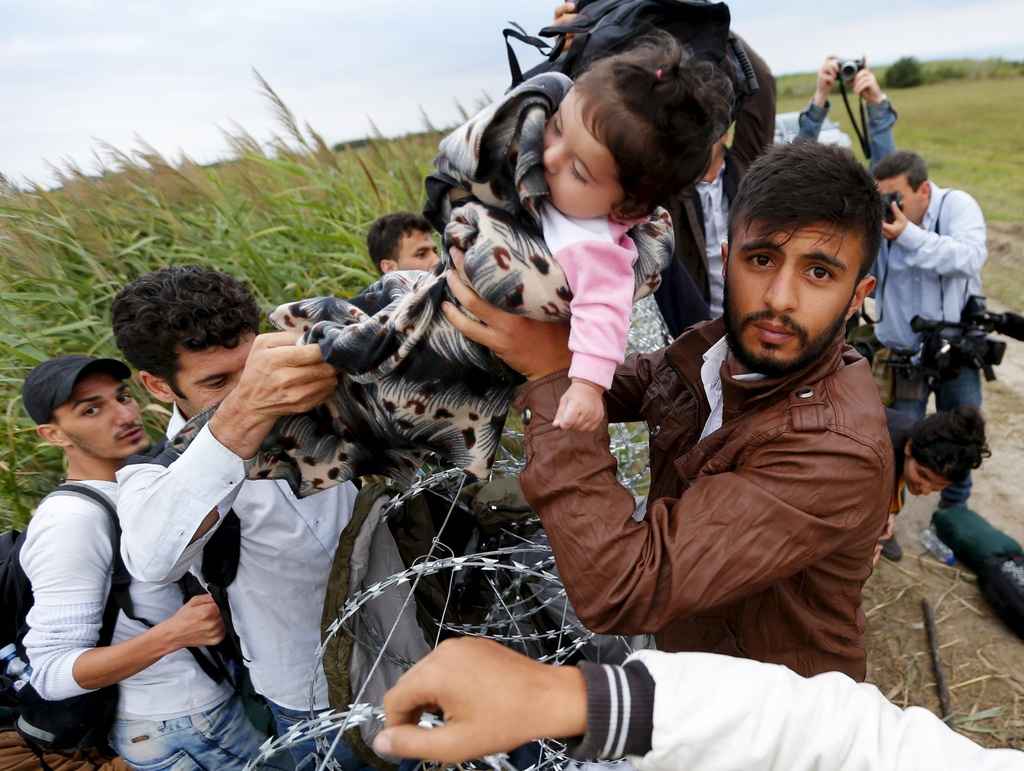MIGRATIONS
Flows towards EU countries increase. The “Balkan way” and the problems of Macedonia, Serbia, Hungary, Italy and Greece. Caritas’ intervention

Death at sea; death on the ground: migrants’ routes towards the dream of Europe are stained with blood. Hundreds drown in sinking barges, others die of asphyxia in ship holds, trucks abandoned off the highways are packed with the horror of death. In 2015 nearly half million migrants sought political asylum in EU Countries. The Balkan corridor is the preferential route of migrant flows. A large majority fled from Syria, Afghanistan, Libya, Iraq, Pakistan, Somalia, Eritrea and even from the Balkans, notably from Kosovo. After having crossed the Turkish and Greek borders, the migrants head towards Northern Europe travelling through Macedonia, Serbia and Hungary. Germany, France, Great Britain and Sweden are the chosen destinations. But once arrived, they are faced with new walls and new barriers. We have retraced these routes, through the accounts of those who, motivated by generosity, have decided to accompany these men and women in their long journey towards a new life. They are the volunteer workers of European Caritas: we collected the testimonies from Hungary and France. It’s the other face of Europe that extends a helping hand. In the meantime the EU called a new special summit on the theme scheduled to take place September 14. The situation in Hungary. The 175km wall that Hungary is erecting on the border with Serbia doesn’t stop the force of migration flows. And unfortunately it fails to discourage human traffickers. Some attempt to climb over it or even pass beneath it. Bálint Vadász from Caritas Hungary confirmed that despite security measures taken by the government, “the situation of refugees in Hungary is very difficult. This year, over 100 thousand migrants have entered the Country”.Organizations such as Caritas provide support to reception centres by offering sheets, mattresses and beds. Refugees are given free meals three times a day but the main problem “is the countless number of migrants who continue arriving, some of whom are emotionally and psychologically worn out. They are traumatized”.There have also been episodes of tensions and clashes with the police. “From what we have seen – Vadász said – the police are trying to cooperate with the migrants but there are difficulties since the latter refuse to comply with provisions enshrined in European legislation and don’t want to be registered”.Caritas Hungary welcomes them with open arms: in addition to regular visits to refugee camps (six to date), Caritas contributes to reception by distributing clothing, personal healthcare and sanitary items. An overall number of 4 thousand kilos of humanitarian aids will be distributed in the coming weeks along with 10 thousand bottles of mineral water. Caritas aid is addressed to minors in particular, with the support to a childhood assistance centre in the city of Fót. Between France and Great Britain. The European dream is broken miserably in Calais, where France and Great Britain make no concession to migrants who want to cross the English Channel. Véronique Devise, chairperson of the delegation of Secours Catholique di Pas du Calais, gave an account of the escalating tragedy that is taking place along the coast. The number of migrants increases day after day, 3 thousand according to estimates provided by the authorities in Calais. Ma other migration flows (impossible to calculate) are registered in the towns and villages located along the Northern shores of Frances. Four-meter high barriers have been erected at the port of Calais. For this reason, since they could not longer cross the port, since June migrants have been trying with all means to cross the Eurotunnel, sadly in many cases at the cost of their own lives. The wall inevitably causes an increase in the number of migrants in Calais, as it acts as a “buffer” to migration flows, and arrivals largely outnumber the passages to Great Britain. “Tension is extremely high – Devise said – they realize their chances to cross the border decrease day after day and this sparks off their anger and disappointment, after all they went through to reach this Country”.Also in Calais Caritas doesn’t abandon the migrants, offering a long list of humanitarian aids implemented through the commitment of 150 volunteer workers active at local level. These range from shower services to daily reception, to special attention to weaker brackets, to accompaniment for juridical operations. But the volunteers are worried of what will happen with winter and cold temperatures, that at these latitudes can drop to -5 degrees Celsius. “Our challenge – concluded Véronique Devise – is to change the way in which we view migrants who are above all victims in need of protection and of extended hands. Self-closures and fears will never be a solution to problems”.